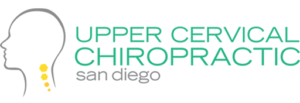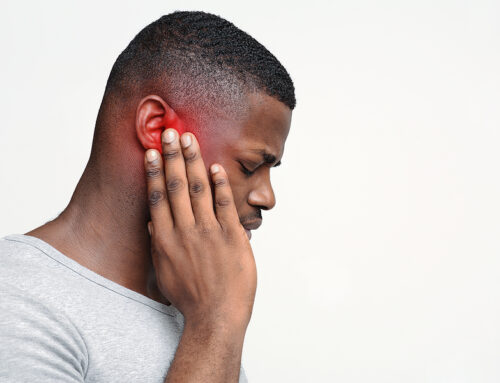Spinal misalignment is a leading cause of trigeminal neuralgia, according to chiropractors providing trigeminal neuralgia relief in San Diego. This pretty rare condition affects 15,000 people in the United States every passing year, and many of these cases result from spinal misalignments. If your doctor diagnosed you with trigeminal neuralgia, it means that you have severe issues with your trigeminal nerve.
The trigeminal nerve makes facial movements near impossible. Without this vital nerve, you won’t be able to chew, bite, or even smile. The trigeminal nerve also plays a significant part in the sensations you feel on your face. If you constantly feel pain on your face, and the aching suddenly becomes sharper when you touch your face, then you might be dealing with trigeminal neuralgia.
What does the spine have to do with trigeminal neuralgia? The upper cervical spine (neck area) is consists of two bones that sit close to the trigeminal nerve. They also protect the brainstem. The topmost bone, known as the atlas, is specially designed to allow movement for the head. Together with the second bone, the axis, the atlas supports and balances the head.
Because of their range of motion and location, these two bones are prone to misaligning. They can misalign from poor posture, accidents, spinal disc disorders, and many other reasons. When these bones move out of alignment, they put additional pressure on the brainstem and the surrounding nerves. Hence, the misalignment can harm the trigeminal nerve and lead to a pain disorder called trigeminal neuralgia.
Table of Contents
Other Common Causes of Trigeminal Neuralgia
Damage to the trigeminal nerve is the primary cause of trigeminal neuralgia. Aside from spinal misalignments, this damage might also result from other reasons, such as underlying conditions or sustained injuries. Here are some of the causes that are found in those who look for trigeminal neuralgia relief in San Diego:
- Cysts near the trigeminal nerve
- Multiple Sclerosis (MS)
- Nerve damage due to dental surgery
- Tumor in the spine or brain
- Injury to the face
- Impacted blood vessels on the face

Symptoms of Trigeminal Neuralgia
Trigeminal neuralgia is more than just facial pain. Other symptoms include muscle spasms in the face and jaw, debilitating aches when you touch your face, anxiety, depression, and sleeping problems. Patients with trigeminal neuralgia may experience the typical or atypical type, depending on the severity of the damage.
Severe, sudden electric shock-like pains characterize typical TN or TN1. Episodes of TN1 can last for a few minutes or hours, with some remissions in between attacks.
Atypical TN or TN2, on the other hand, is when a patient constantly feels facial or jaw pain. The pain, similar to a lingering burning sensation, can extend for a few days.
Some Triggers of Trigeminal Neuralgia
As mentioned earlier, trigeminal neuralgia is a pain disorder experienced in the face or jaw. When you develop a bruise, and you keep touching it, the bruise becomes more painful. This idea is also accurate for trigeminal neuralgia. Hence, you have to learn about the triggers that can aggravate your pain disorder. This way, you’ll know what to avoid.
Chiropractors offering trigeminal neuralgia relief in San Diego tell their clients to avoid these triggers to prevent flare-ups:
- Smiling or moving your jaw too much
- Touching your face
- Shaving your facial hairs
- Washing your face
- Applying makeup
- Chewing hard food, like hard steaks and gum
- Brushing your teeth
- Sleeping on your belly
Trigeminal Neuralgia Care and Management
Doctors generally prescribe pain medications to manage trigeminal neuralgia symptoms. Some of the medicines they recommend are pain relievers, anticonvulsant drugs, and opioids. These medications are usually given in small doses initially, and doctors will only bump up the dosage if necessary. While these medications effectively alleviate facial pains, they may cause dizziness or nausea when used constantly for long periods. Long-term use of anticonvulsants may also render them ineffective.
Severe cases of trigeminal neuralgia may require surgical intervention. Depending on the source of the irritation to the trigeminal nerve, doctors might perform open cranial surgery or lesioning surgery. Both of these operations effectively relieve facial pains; however, lesioning procedures might only have temporary results.
Many patients with trigeminal neuralgia might not have enough resources nor capability to undergo such surgical procedures. Also, given the possible side effects of pain medications, it might not be the best option for TN patients with other underlying conditions. This is why patients look for alternative care options to get trigeminal neuralgia relief in San Diego.
Upper Cervical Care: How It Relieves Trigeminal Neuralgia
As mentioned before, neck alignments are one of the leading causes of trigeminal nerve damage. Suppose you recently got into an accident that injured your neck. This injury can negatively impact the neck’s function and add excess pressure to the nerves in the surrounding region.
The extra stress and tension can lead to the irritation of facial nerves. If this happens, the affected person may feel facial pain, a classic symptom of trigeminal neuralgia.
For issues related to the alignment of the neck, the best people to visit are upper cervical chiropractors. Upper cervical chiropractic aims to restore the cervical bone subluxation, allowing the body to heal sustainably. Upper cervical chiropractors create tailor-made adjustments for each client after thoroughly assessing each patients’ medical history and fully diagnosing the neck misalignment.
Correcting the subluxation of the neck bones can help alleviate trigeminal neuralgia symptoms. Many patients that have come to us for trigeminal neuralgia relief in San Diego report a rapid decrease in the intensity and frequency of their TN episodes. Immediately dealing with the misalignments can also help reverse the damages done to the nerve.
Here at Upper Cervical Chiropractic San Diego, our resident chiropractor, Dr. Cook, can help you restore control from trigeminal neuralgia pains. Our chiropractor uses exact and gentle techniques to bring the neck back to its natural alignment.
Do you want to experience relief from trigeminal neuralgia? Schedule a consult with Dr. Cook today! Get in touch with us by accomplishing this form.
To schedule a consultation with Upper Cervical Chiropractic San Diego, call 858-434-5926 or just click the button below.
If you are outside of the local area you can find an Upper Cervical Doctor near you at www.uppercervicalawareness.com.



